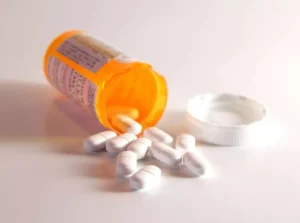

Recovery stories are important because people need choices that work for them, he urges. That includes offering interactive, online seminars; pilot grant funding; research mentoring programs; help with designing and testing new measures; as well as collecting and sharing existing measurement resources. That is becoming a key metric for making these supports widely available through expanded public or private funding, or for linking the services to healthcare systems. Not everybody requires medically supervised detox or an extended stint in rehab. The care you need depends on a variety of factors, including your age, drug-use history, medical or psychiatric conditions.
Choosing Drug Rehab and Addiction Treatment
Incorporating activities like jogging, yoga, or strength training into daily routines can significantly enhance recovery. Explore the link between ADHD and addiction and learn treatment strategies for managing them with The Recovery Team. Additionally, consider joining a support drug addiction recovery group like Alcoholics Anonymous (AA) or Narcotics Anonymous (NA). These groups provide a protective environment where you can share your experiences and learn from others on a similar path. Cognitive restructuring includes changing the pattern of thinking about your cravings.
- As a person continues to use drugs, the brain adapts by reducing the ability of cells in the reward circuit to respond to it.
- It’s about surrounding yourself with people who uplift and encourage you, especially during tough times.
- Studies show that craving has a distinct timetable—there is a rise and fall of craving.
- It is possible that escalation to a therapeutic dose may need to be more rapid.
Find Support


As a result, patients are able to handle stressful situations and various triggers that might cause another relapse. Behavioral therapies can also enhance the effectiveness of medications and help people remain in treatment longer. If you or a loved one is ready to take action and start the drug and alcohol recovery process, you’ve already started the stages of change and may be looking for treatment options. Treatment varies depending on the type of substance, the presence of co-occurring mental disorders and other personal factors. It’s important to explore your options and choose treatment that addresses your individual needs. These support groups and their recovery Steps provide social support to people when they need it.


Early Serious Mental Illness Treatment Locator
It occurs in a controlled setting (not in the person’s home or family home). Intervention works by confronting the specific issues and encouraging the person to seek treatment. Hogue’s HEAL-funded research aims to create tools for providers, youth, and their families to find lasting recovery by targeting three concrete principles. Like many other chronic conditions, treatment is available for substance use disorders.
- In the past few decades, science has brought us effective behavioral and medication addiction treatments as well as lifesaving treatments that revive people from overdose and give them a chance to seek lasting recovery.
- Finally, staying vigilant and recognizing warning signs of relapse can enable individuals to intervene before a full relapse occurs.
- Monitoring involves regularly assessing goals, strategies, and coping mechanisms to ensure they remain effective and relevant.
- Therapy and counseling provide essential support for individuals navigating the recovery process.
- Since the COVID-19 pandemic, these groups that were often out of reach to many are now available online around the clock through video meetings.
- Intervention works by confronting the specific issues and encouraging the person to seek treatment.


Mixing multiple types of drugs together is extremely dangerous and can potentially lead to overdose and death. People with mental health disorders are more likely to develop an SUD than the general population. Addiction is a chronic, relapsing brain disease defined by a physical and psychological dependence on drugs, alcohol, or a behavior. A person with an addiction will often pursue their toxic habits despite putting themselves or others in harm’s way. Find treatment programs in your state that treat addiction and dependence on opioids.
Drug addiction, or substance use disorder (SUD), is when someone continues using a drug despite harmful consequences to their daily functioning, relationships, or health. Using drugs can change brain structure and functioning, particularly in areas involved in reward, stress, and self-control. These changes make it harder for people to stop using even when they really want to. He states that research shows that family-based support for addiction recovery is critical but often not obtained. Yet sustained, personalized recovery services are essential because treatment is just the first step toward growth and finding a high quality of life without substances. Relapse is a common part of the recovery process from drug addiction.
- This step-by-step guide can help you cope with cravings, deal with relapse, and overcome your substance use disorder.
- Shame is an especially powerful negative feeling that can both invite addiction in the first place and result from it.
- This group of people with lived experience advises the NIH HEAL Initiative on research directions and ensures that research takes into consideration input from people and communities the initiative aims to benefit.
Department of Health and Human Services (HHS) that leads public health efforts to advance the behavioral health of the nation. It also is essential that the provider tailor treatment, which may include behavioral https://ecosoberhouse.com/ therapies and medications, to an individual’s specific combination of disorders and symptoms. It should also take into account the person’s age, the misused substance, and the specific mental disorder(s).


- The sooner you seek help, the greater your chances for a long-term recovery.
- But even though they were in a foreign and unpopular war and ostracized by society, they knew we would be a place to get help.
- “There are a lot of reasons for this,” explains HEAL-funded clinical psychologist Aaron Hogue, Ph.D., of the New York City-based Partnership to End Addiction.
- • Connection—being in touch with others who believe in and support recovery, and actively seeking help from others who have experienced similar difficulties.
- Another widely applied benchmark of recovery is the cessation of negative effects on oneself or any aspect of life.
- Practicing refusal skills and having a plan in place for high-risk situations can help individuals maintain their sobriety.

